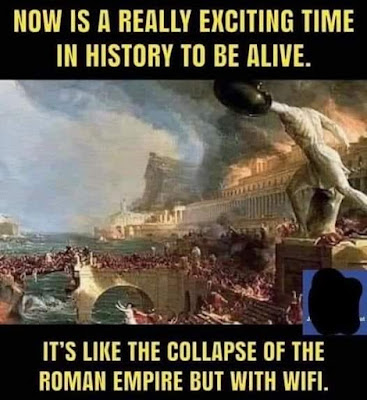Running On Empty
We can't go on living this way. That's the warning from Sir Patrick Vallance, the UK's chief science officer.
The relationship between humans and nature is under intense and increasing strain. The report released today by Ipbes, the Intergovernmental Science-Policy Platform on Biodiversity and Ecosystem Services (akin to the IPCC reports on climate change), provides compelling evidence that humans are overexploiting wild species and habitats. Harmful activities, including habitat destruction, poor farming practices and pollution, have altered ecosystems significantly, driving many species past the point of recovery. In Great Britain alone, of the 8,431 species assessed in the 2019 State of Nature report, 1,188 are threatened with extinction. Globally, there are an estimated one million at risk, with biodiversity declining at a faster rate than at any time in human history.
Alongside overexploitation, humans are driving biodiversity loss by destroying, polluting and fragmenting habitats across the globe. Many of the UK’s important peatlands, which provide a home for rare species such as the hen harrier, have been drained for agricultural use. The Amazon rainforest is being cleared to such an extent that it may be near a tipping point beyond which it cannot recover.
The key, according to Sir Patrick, is finding the political will to change and actually implementing change instead of just talking about it endlessly. This brings to mind British celebrity physicist, Brian Cox', explanation of why we're not sharing our sidewalks with little green men from distant galaxies.
According to the article published on Sunday Times, Professor Brian Cox said:
“One solution to the Fermi paradox is that it is not possible to run a world that has the power to destroy itself and that needs global collaborative solutions to prevent that.”
“It may be that the growth of science and engineering inevitably outstrips the development of political expertise, leading to disaster. We could be approaching that position.”
Comment Response -
NPoV - can you explain the Sorcerer's Apprentice reference?
Troy - Indeed, we have to accept collaborative sacrifice if we're to survive. Mankind must take stock and accept the imperative of living in harmony with our ecology addressing the greenhouse gas and ozone problems, overpopulation and our unsustainable production, consumption and waste. If we don't curb our excesses, and fast, we're finished. History is rich in examples of societies that have brought themselves to collapse, often aware of what they were doing. The difference is this time it's not just a local or regional problem but a truly global phenomenon.
Owen - It is strange how we embraced the models that have brought us to the abyss. Yet here we are.



The Sorcerer's Apprentice comes to mind.
ReplyDeleteWhat is the intent of Western society?
ReplyDeleteIt has been captured by a narrow minded ideology that has no interest outside of the individual self. The libertarian ideology is rotten and selfish but those who adhere to it have seen its installment into the highest offices. They have worked to eliminate anything that seems as though it could help another in any way. That is their goal. They want to place people into a world where they are on their own. Individuals in a sea of people rather than a single society.
Climate change? You're on your own. Covid-19? You're on your own.
The solutions to our problems are simple—elegant even—but they involve working together and individuals making sacrifices. I suppose that latter part is the reason the libertarian business class has not only rejected but instituted policies designed to further exacerbate all these processes. Rather than make only 75¢ instead of the whole dollar, they'd prefer to salt the earth after clearing it of anything profitable. If they can't have it all then they'd prefer no one else could.
It's strange that what we used to think of as progress has become the thing that could do us in.
ReplyDelete